Ditapis dengan
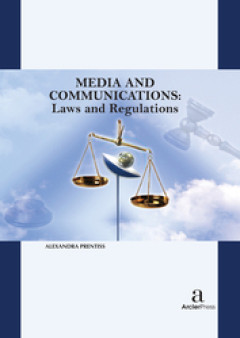
Media and Communications; Laws and Regulations.--
This book aims to generate and disseminate knowledge about communication, and the way in which it operates and affects individuals and nations. Media regulation is the control or guidance of mass media by governments and other bodies. This regulation, via law, rules or procedures, can have various goals, for example intervention to protect a stated “public interest”, or encouraging competit…
- Edisi
- -
- ISBN/ISSN
- 978-1-98460-807-9
- Deskripsi Fisik
- -
- Judul Seri
- -
- No. Panggil
- 302.24 ALE m
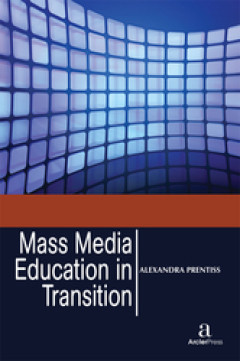
Mass Media Education in Transition.--
Mass media is the means that are used to communicate to the general public. This book provides a broad view of the major issues affecting all aspects of media education print and broadcast journalism, advertising, public relations, and media studies.
- Edisi
- -
- ISBN/ISSN
- 978-1-98460-797-3
- Deskripsi Fisik
- -
- Judul Seri
- -
- No. Panggil
- 302.234 ALE m
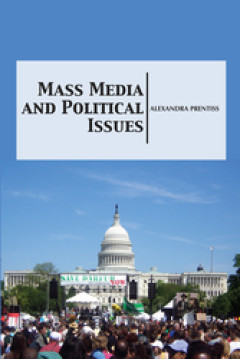
Mass Media and Political Issues.--
This book provides an overview on the social scientific process by asking if theories exists to explain personal observations in politics and the media and if there is evidence to support the theories. The role of the mass media (MM) in influencing mass and class behavior has been a central concern among critical writers, especially since the turn of the Twentieth century. Debates and studies o…
- Edisi
- -
- ISBN/ISSN
- 978-1-98460-803-1
- Deskripsi Fisik
- -
- Judul Seri
- -
- No. Panggil
- 302.23 ALE m
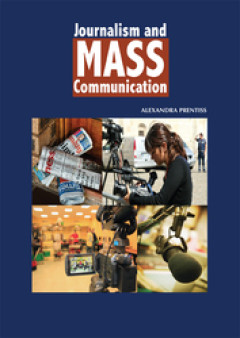
Journalism and Mass Communication.--
As a result of technological advances and globalization, the role of media as a source of information has become increasingly fraught with challenges. Journalism and mass communication are at a crossroads. Both the medium and the profession of journalism have had to innovate to meet the demand of an increasingly complex global information market. Traditional news media has transitioned from pri…
- Edisi
- -
- ISBN/ISSN
- 978-1-98460-796-6
- Deskripsi Fisik
- -
- Judul Seri
- -
- No. Panggil
- 070 ALE j
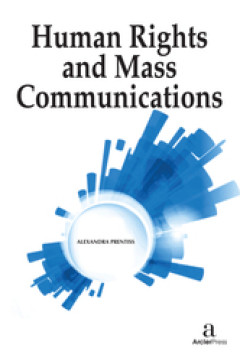
Human Rights and Mass Communication.--
Communication rights involve freedom of opinion and expression, democratic media governance, media ownership and media control, participation in one’s own culture, linguistic rights, rights to education, privacy, assemble, and self-determination. They are also related inclusion and exclusion, quality and accessibility to means of communication. This book examines the role of the media in prom…
- Edisi
- -
- ISBN/ISSN
- 978-1-98460-798-0
- Deskripsi Fisik
- -
- Judul Seri
- -
- No. Panggil
- 341.48 ALE h
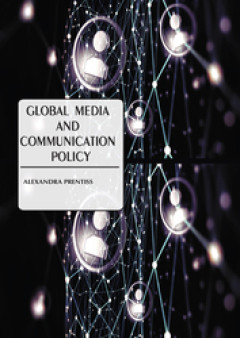
Global Media and Communication Policy.--
Global Media and Communication Policy offers new conceptual frameworks and new methodologies for mapping the contours of emergent global media and communication policy, drawing on theory and empirical research to offer multiple perspectives on the local, national, regional and global forums in which policy debate occurs. This book provides insights into the boundaries of this field of study, as…
- Edisi
- -
- ISBN/ISSN
- 978-1-98460-806-2
- Deskripsi Fisik
- -
- Judul Seri
- -
- No. Panggil
- 302.2 ALE g
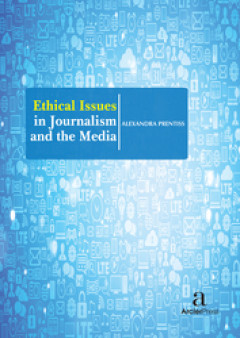
Ethical Issues in Journalism and the Media.--
Journalism ethics and standards comprise principles of ethics and of good practice as applicable to the specific challenges faced by journalists. All over the world codes of conduct have been proposed for journalists. In fact ethics is inseparable from journalism, because the practice of journalism is centred on a set of essentially ethical concepts: freedom, democracy, truth, objectivity, hone…
- Edisi
- -
- ISBN/ISSN
- 978-1-98460-804-8
- Deskripsi Fisik
- -
- Judul Seri
- -
- No. Panggil
- 070 ALE e
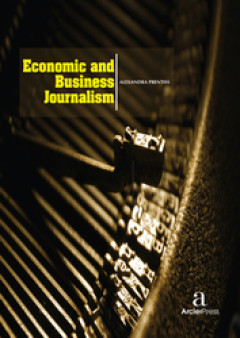
Economic and Business Journalism.--
Business journalism is the branch of journalism that tracks, records, analyzes and interprets the economic changes that take place in a society. It could include anything from personal finance, to stock exchange, entrepreneurship, business at the local market, and shopping malls, to the performance of wellknown and not-so-well-known companies. This area of journalism covers news and features ar…
- Edisi
- -
- ISBN/ISSN
- 978-1-98460-802-4
- Deskripsi Fisik
- -
- Judul Seri
- -
- No. Panggil
- 070 ALE e
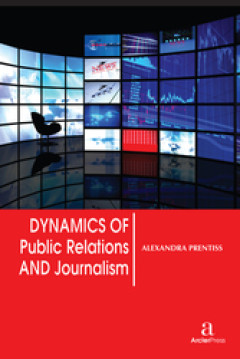
Dynamics of Public Relations and Journalism.--
Public relations and journalism have had a difficult relationship for over a century, characterized by mutual dependence and – often – mutual distrust. In recent years, developments in corporate Public Relations and in political communications mean that the news media outlets are less and less important to the persuaders. The communications business is often able to bypass the gatekeepers. …
- Edisi
- -
- ISBN/ISSN
- 978-1-98460-805-5
- Deskripsi Fisik
- -
- Judul Seri
- -
- No. Panggil
- 302.5 ALE d

Alternative Journalism,-
Alternative media are defined most broadly as those media practices falling outside the mainstreams of corporate communication. This book charts the historical and cultural practices of this diverse and globalized phenomenon. This book is the must-have guide to everything you need to know about how journalism works. Alternative media outlets often engage in advocacy journalism and frequently pr…
- Edisi
- -
- ISBN/ISSN
- 978-1-98460-800-0
- Deskripsi Fisik
- -
- Judul Seri
- -
- No. Panggil
- 070 ALE a
 Karya Umum
Karya Umum  Filsafat
Filsafat  Agama
Agama  Ilmu-ilmu Sosial
Ilmu-ilmu Sosial  Bahasa
Bahasa  Ilmu-ilmu Murni
Ilmu-ilmu Murni  Ilmu-ilmu Terapan
Ilmu-ilmu Terapan  Kesenian, Hiburan, dan Olahraga
Kesenian, Hiburan, dan Olahraga  Kesusastraan
Kesusastraan  Geografi dan Sejarah
Geografi dan Sejarah